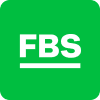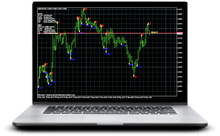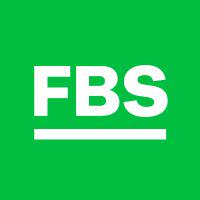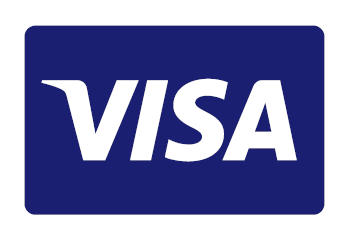Algorithmischer Handel: Was ist das?
Informationen sind keine Investitionsberatung
Stellen Sie sich vor, vor etwa einem Jahrhundert gab es noch keine Computer oder Digitalgeräte. Händler machten sich Notizen zu ihren Geschäften auf Papier und mussten mit ihren Brokern telefonieren, um eine Position zu eröffnen. Alles änderte sich in den 1970er- und 1980er-Jahren, im Zeitalter der Computerisierung. Heute, vierzig Jahre später, sind wir nicht nur in der Lage, Geschäfte in Sekundenschnelle auszuführen, sondern wir können auch ein System aufbauen, das statt uns arbeitet. Heute werden wir Sie in die komplizierte, aber interessante Welt des algorithmischen Handels (auch bekannt als automatisierter Handel, quantitativer Handel oder Algo-Trading) einführen. Da der Algo-Handel für einen Anfänger ein wenig beängstigend erscheinen mag, werden wir Ihnen erklären, was es ist.
Einführung
Im Allgemeinen steht der Begriff"algorithmischer Handel" für den Handel mit einem System, das nach einem vorprogrammierten Regelwerk (Algorithmus) arbeitet. Nehmen wir an, Sie haben einen japanischen Roboter gekauft, der alles tut, was Sie von ihm verlangen. Es gibt nur eine Schwierigkeit – Sie müssen Japanisch lernen, um diesem Roboter Befehle zu geben. Beim Algo-Trading funktioniert alles gleich. Sie können einen Algorithmus erstellen, der so viele Geschäfte öffnet, wie Sie möchten. Sie müssen jedoch erst lernen, wie dieser Algorithmus aufgebaut ist.
Algo-Trading - Handel mit einem System, das nach einem vorprogrammierten Regelwerk (Algorithmus) arbeitet.

Es gibt zwei Arten des Algo-Handels. Die erste Art, die vor allem von großen Investmentfonds genutzt wird, nennt man Hochfrequenzhandel (HFT). Unternehmen nutzen superstarke Computer, um eine große Anzahl von Aufträgen innerhalb einer Sekunde auszuführen. Es gibt viel Kritik an HFT, da hier keine menschlichen Entscheidungen involviert sind. Der Hochfrequenzhandel, der von großen institutionellen Akteuren genutzt wird, ist ebenfalls ein Grund für große, unerwartete Bewegungen im Markt.
Die zweite Art des Algo-Handels ist der Niederfrequenzhandel. Er basiert auf Programmierkenntnissen und Erfahrung in technischer und fundamentaler Analyse. Als regelmäßige Händler mit der MetaTrader 5 Software, die ihre Geschäfte automatisieren wollen, werden wir uns auf diese Art des Algo-Handels konzentrieren.
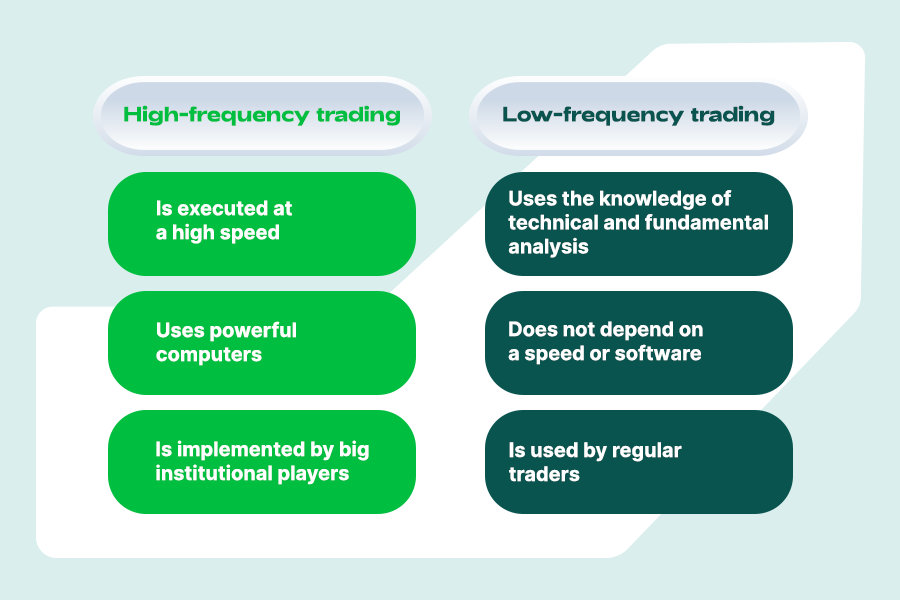
Woher kommt der Algo-Handel?
Die Geschichte des Algo-Handels begann vor 50 Jahren, als das "Designated Order Turnaround"-System (DOT) an der New York Stock Exchange eingeführt wurde. Es ermöglichte das Senden von elektronischen Aufträgen an den Handelsposten. Die Erfindung des berühmten Bloomberg-Terminals zu Beginn der 1980er Jahre war ein weiterer massiver Schritt in der Entwicklung des Algo-Handels.
Der entscheidende Punkt war jedoch die Dezimalisierung in den USA, die die minimale Tickgröße auf $0,01 pro Aktie änderte. Daher wurden kleinere Differenzen zwischen dem Geld- und dem Briefkurs zugelassen. 1998 gab die US Securities and Exchange Commission grünes Licht für elektronische Börsen. Dies war der Beginn des Hochfrequenzhandels. Mit der rasanten Entwicklung der Technologien erlaubte neue, schnellere Hardware den Programmierern, Algorithmen zu schreiben, die den Computern die Möglichkeit gaben, die Preisbildung und die Anzahl der Geschäfte nach einem vorher festgelegten Regelwerk zu entscheiden. Jetzt können Sie sogar eine Programmiersprache für die Finanzdatenanalyse lernen.
Sprachen für den Algo-Handel
Sie können zwischen verschiedenen Programmiersprachen für den Algo-Handel wählen. Typischerweise wählen algorithmische Händler zwischen Python, C++, Java, C# oder R. In Forex gibt es jedoch spezielle Arten von Sprachen, die in der MetaTrader-Umgebung existieren. Diese sind MQL4 für MetaTrader 4 und MQL5 für MetaTrader 5. Obwohl es als eine modifizierte Version von MQL4 bekannt ist, ist MQL5 flexibler. Der Grund dafür liegt in der Sprach-Syntax, die sehr nah an C++ ist. Es erlaubt Programmierern, mehr Optionen für die Entwicklung von Handelsrobotern zu nutzen.
In unserem Kurs konzentrieren wir uns auf die Entwicklung von Handelsrobotern mit der Sprache MQL5. Warum?
Erstens, weil der MetaTrader 5 den Zugang zum Handel mit mehr Instrumenten ermöglicht. Das heißt, Sie können Handelsroboter für Aktien, Metalle, Währungen, etc. verwenden.
Zweitens, MQL5 ist sehr nah an C++. Durch das Erlernen von MQL5 erhalten Sie ein breiteres Verständnis für die Grundlagen der Programmierung.
Drittens, MQL5 hat seine integrierte Entwicklungsumgebung MQL5 IDE, wo alle Handelsanwendungen entwickelt werden. Sie müssen also keine weitere Software dafür herunterladen.
Endlich, gibt es eine große Code-Basis für MQL5-Programmierer, um Roboter zu finden und Ideen zu teilen.
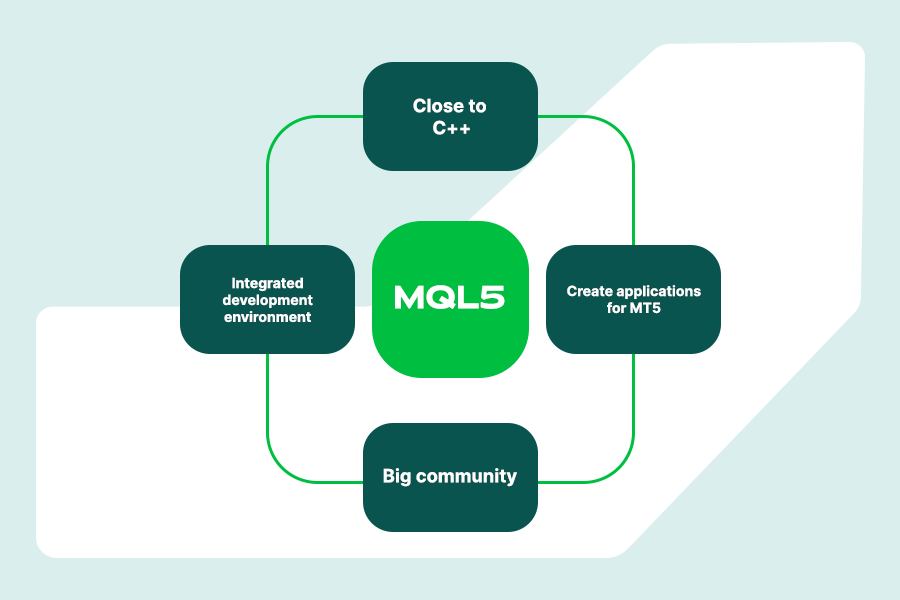
Beachten Sie, dass die Dokumentation für diese Sprache auf der offiziellen MQL5-Website verfügbar ist.
Warum sollten Sie MQL5 lernen?
Wenn Sie mit MetaTrader 5 handeln, hilft Ihnen die Erfahrung mit der spezialisierten integrierten Entwicklungsumgebung (IDE) MQL5 bei der Erstellung Ihrer Indikatoren, Handelsroboter und bei der Modifizierung bestehender Indikatoren. Es wird Ihnen helfen, Ihre Handelsentscheidungen zu automatisieren und deren Effektivität zu steigern.
Dies ist die erste Lektion unseres Algo-Handelsleitfadens. Bleiben Sie dran und erfahren Sie in den nächsten Lektionen mehr darüber, wie man einen Handelsroboter erstellt!
Andere Artikel in dieser Sektion
- Struktur eines Handelsroboters
- Einen Handelsroboter ohne Programmierung bauen
- Wie man Handelsroboter im MetaTrader5 benutzt?
- Algo-Handel mit MQL5
- Was bedeutet "Trunkierung"?
- Ichimoku
- Führendes Diagonalmuster
- Wolfe-Wellen-Muster
- Three-Drives-Muster
- Hai
- Schmetterling
- Crab
- Bat
- Gartley
- ABCD
- Harmonische Muster
- Motiv- und Korrekturwellen. Wellengrade
- Einführung in die Elliott-Wellen-Analyse
- Wie man Breakouts handelt
- Devisenhandel Nachrichten
- Wie kann man einen Take Profit aufgeben?
- Risikomanagement
- Wie vergibt man einen Stop-Loss-Auftrag?
- Techische Indikatoren: Handel-Divergenzen
- Ichimoku Kinko Hyo


